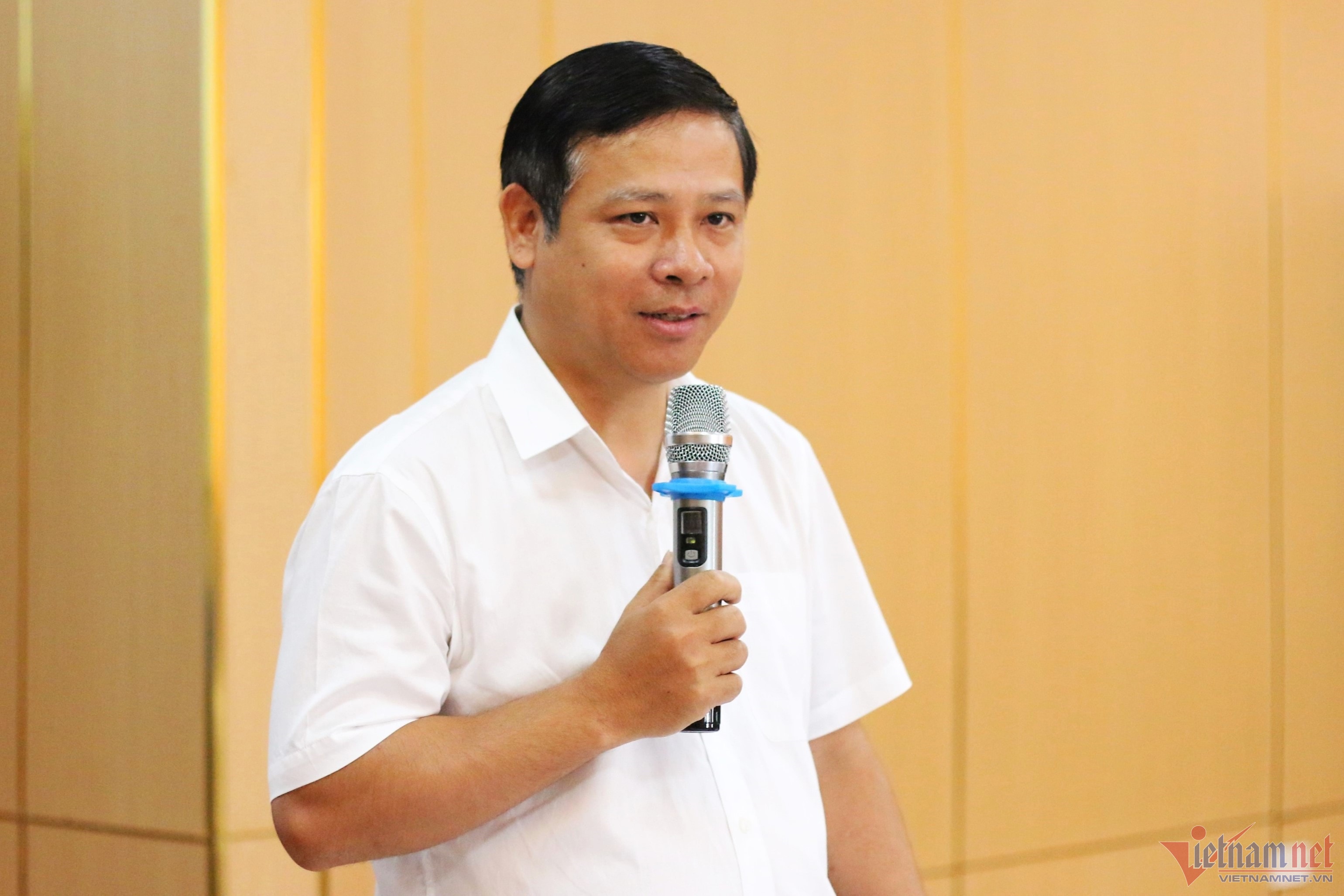The Ministry of Education and Training will pilot the creation of electronic transcripts for use nationwide.
The Ministry of Education and Training will pilot the implementation of electronic transcripts to reduce administrative procedures and pressure on teachers and schools.
Piloting the use of electronic transcripts
Dr. Nguyen Son Hai, Director of the Department of Information Technology (Ministry of Education and Training), said that the Ministry has issued a circular encouraging schools to use electronic transcripts and electronic grade books. Schools and localities have also started to implement it, and some places have even implemented it in the entire province.
However, the implementation encountered many difficulties, and schools in different provinces were not consistent.
“Therefore, the leaders of the Ministry of Education and Training have directed the departments and bureaus to pilot this implementation. The model will be implemented nationwide and then the results will be accurately evaluated to have guidelines and institutions for implementation. Currently, the departments and bureaus of the Ministry are in the process of implementation,” said Mr. Hai.
Mr. Hai said that electronic transcripts are an electronic form of transcripts, with authenticated signatures of authorized individuals and organizations, have legal value and can be used like paper transcripts and used in the digital environment.
According to Mr. Hai, if electronic transcripts can be made, it will bring great benefits to society, schools, teachers, students, etc.
Mr. Hai cited the convenience in storing, managing and using school records. “Currently, our school records are made of paper and can be crumpled, and if left for a long time, they can be eaten by termites or even damaged. But electronic school records are very good at storing.”
The second is to reduce the pressure on records and books for teachers and schools.
“We will also study to restructure the electronic transcript process to ensure it meets the requirements but is simple. For example, currently, for secondary school transcripts, subject teachers must sign. We will also study this in the future to see if it is necessary for subject teachers to sign the transcript, or if it is only necessary for the school principal to sign,” said Mr. Hai.

Third, make transparent the process of managing learning and training results and especially limit shortcomings in correcting students' learning results.
“The electronic transcript solution will minimize that. When we are transparent, it will be very difficult to make corrections, thereby limiting the negative impacts we are currently facing when using paper transcripts.”
However, Mr. Hai said, the Ministry of Education and Training also identified digital transformation in core education, the most important is still in teaching - learning, testing and assessment.
According to Mr. Hai, the current assessment and evaluation is still mainly done by teachers: creating questions, organizing exams, marking papers, assigning scores... "A huge amount of work, especially for teachers who teach many classes".
Therefore, the digital transformation orientation in assessment that the Ministry of Education and Training is aiming for is to increase online assessment (for regular tests) and increase computer-based testing (for periodic tests).
“In the future, general education will have to be determined and resolute in doing this. If periodic exams can be done on computers, the benefits will be huge. Firstly, it is public and transparent when the quality of the exam questions is the same, the grading is done by machines and there is no human impact. This will improve the quality of the assessment. Secondly, it will greatly reduce the pressure and work for teachers when doing this. The scores after students finish the exam can also be automatically updated in the management software,” Mr. Hai emphasized.
Building a pilot project for a digital university education model
To promote digital transformation in university training, according to Mr. Hai, the Ministry of Education and Training is working with universities to build an open online training platform, shared by universities (MOET-MOOC).
“It is a common system and students of all schools will share learning materials and courses on it. Initially, there are 7 main training groups whose courses will be digitized and will be chaired by 7 training institutions, in coordination with related schools to participate in building and using the system together.
That means schools will join together to build courses and put them on this platform. Thereby, training institutions can unify and recognize each other's credits of online courses on the system. Thus, in the future, students of this school can study courses of other schools if their credits are recognized by their school.
Currently, the Ministry of Education and Training is building and preparing to submit to the Prime Minister for approval a pilot project for this digital university education model./.


